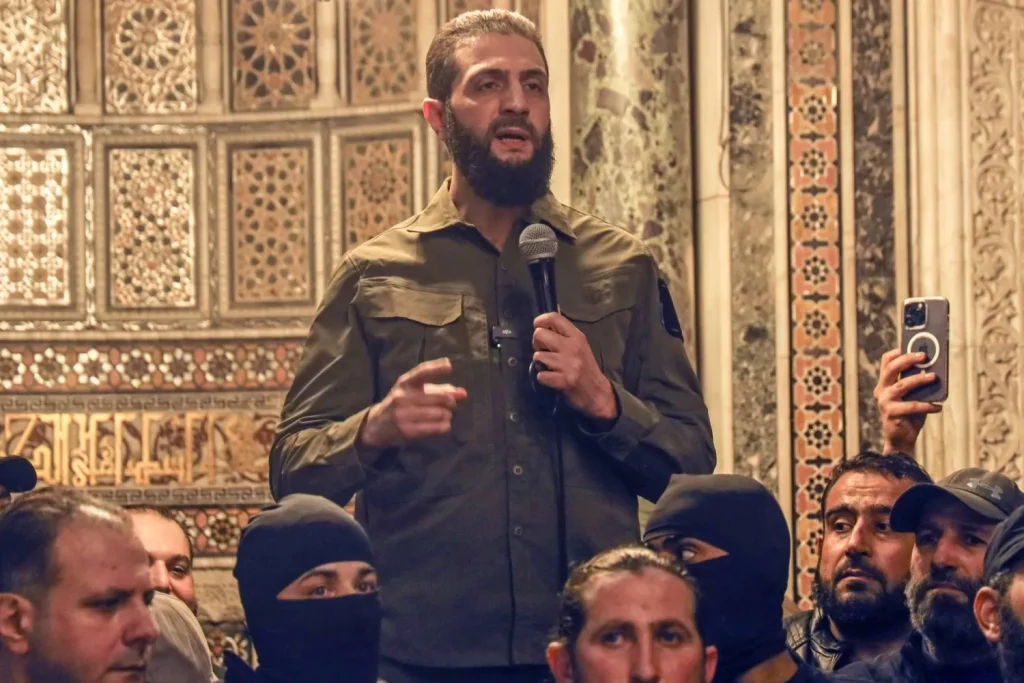Syria’s president and former HTS leader makes Time’s most influential list

Syria’s interim president Ahmad al-Sharaa, better known by his nom de guerre Abu Mohammad al-Julani, has landed a spot as one of Time magazine’s 100 most influential people of the year, reports The New Arab. Sharaa was the only leader from the Middle East to make the cut on April 16th, accompanying the likes of Donald Trump and Kier Starmer.
Former US ambassador to Syria Robert Ford nominated Sharaa, praising him as “soft-spoken” and “ambitious”. Ford noted that though once aligned with Al-Qaeda and ISIS, Sharaa later fought both groups aggressively, while assembling alliances with rebels “often at gunpoint” and ruling a conservative statelet while reaching out to minorities.
Sharaa gained notoriety as the leader of Hayat Tahrir al-Sham (HTS), a prominent Islamist militia that evolved from al-Qaeda’s Syrian affiliate, Jabhat al-Nusra. HTS’ terrorist designation was only lifted in January 2025, along with the 10-million-dollar bounty for Sharaa’s capture following the group’s overthrow of the brutal Assad regime in December 2024.
“To beat Assad,” Ford wrote, “Sharaa understood he had to become a political leader as well as a military force.”
Yet efforts to stabilize Syria remain fraught with a national army still in formation amid deep factional divides and sporadic sectarian killings. According to the Syrian Network for Human Rights, 803 Syrians—mostly Alawites—have been killed by pro-government forces since the start of the year.
Tasked with repairing the war-torn country, this year’s list comes right as Sharaa works to secure international support and sanctions relief.
Already, the UK and several European countries have begun easing sanctions on Syria. Washington reportedly issued a list of demands for Damascus in exchange for partial relief from sanctions. Sharaa’s government is also set to receive support from Turkey, Qatar, and Saudi Arabia, signifying a hopeful economic future for Syria.
As he navigates Syria’s diverse demographic, from the conservative militants he once led, to liberal reformists simply relieved at the ousting of Assad, Ford questions whether Sharaa is an “Islamist extremist whose moderate poses are only ploys for temporary political gain, or if he’s more a pragmatic politician who exploited extremist groups to gain power.”
The New Arab, Maghrebi
Want to chase the pulse of North Africa?
Subscribe to receive our FREE weekly PDF magazine













